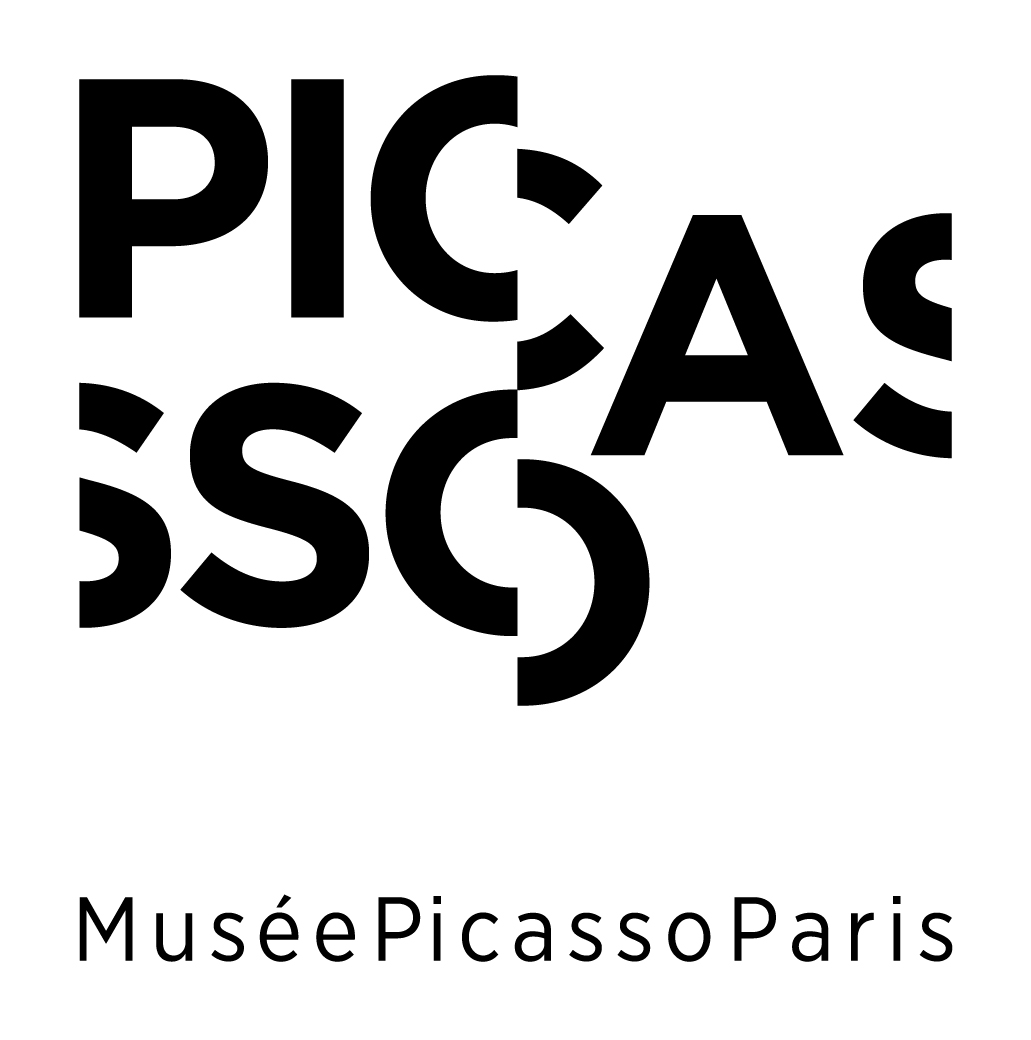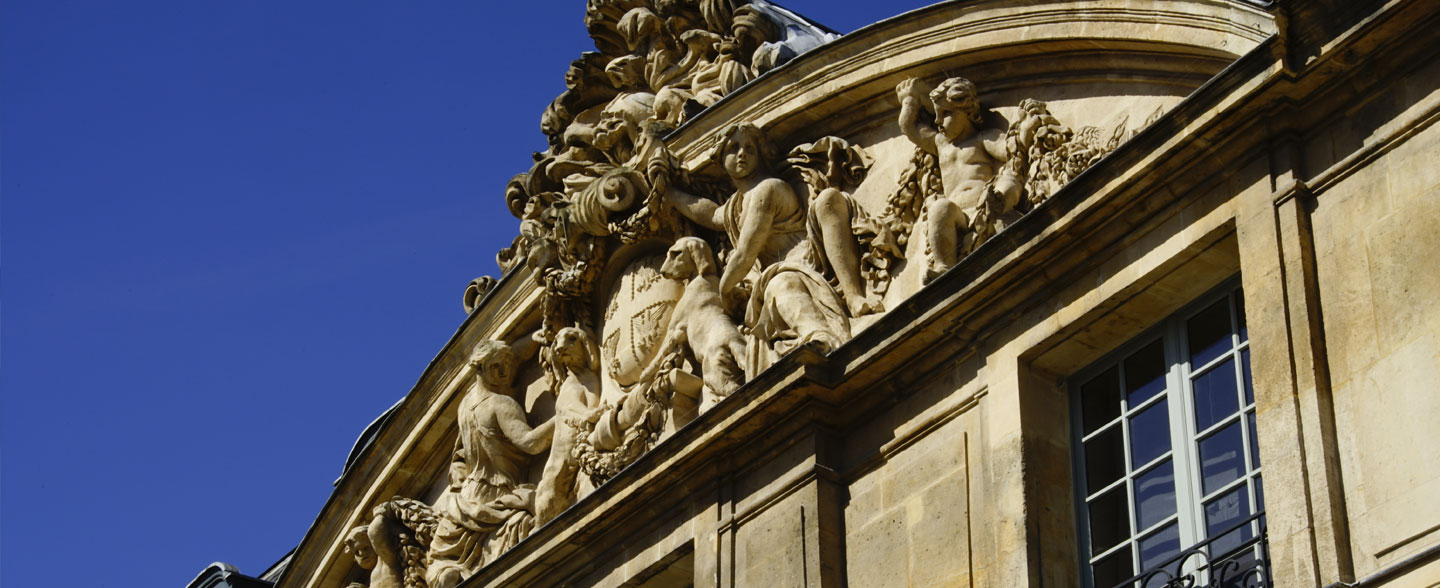The Musée national Picasso-Paris has, since its reopening in 2014, focused part of its scientific and cultural project on the creation of partnership networks. These networks, which are international in scope, aim on the one hand to strengthen the museum's ties with other Picasso museums and fine arts museums of the 20th century, and on the other hand to conduct in-depth research on subjects related to Pablo Picasso, particularly on the occasion of exhibition projects.
The « Picasso-Méditerranée » event (2017-2019)
On the occasion of the hundredth anniversary of Picasso's trip to Italy, the Musée national Picasso-Paris launched "Picasso-Méditerranée" in 2017, an event that developed along five essential lines: scientific first and foremost, but also patrimonial, contemporary, multidisciplinary and multiform. The project consisted in giving a scientific impulse and federating around a common theme, thus weaving a real network of Picasso research.
The Musée national Picasso-Paris has made itself available to seventy partner cultural institutions for the construction of projects - loan of works, management of a website, visual and graphic communication of the event - while allowing each to keep its singularity.
Through this event of extraordinary scope, the museum wished above all to create a network of cultural institutions, collaborating to put together an exceptional series of exhibitions. To this end, the museum has opened its collection to loans, with the aim of making Picasso's works travel throughout the Mediterranean, a geographical area so dear to the artist.
The museum's role has thus been above all that of a voluntary lender, with a dynamic policy of disseminating its collections, for exhibitions of very varied types: monographic, thematic, in dialogue with Picasso's contemporaries or artists of today, centered on a technique, a period, a place of life or creation, they have all offered a singular and renewed approach to Picasso's work under the Mediterranean prism.
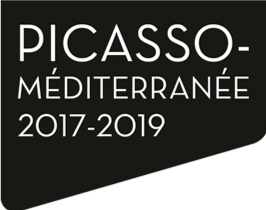
As the programming of the Musée national Picasso-Paris is based on the notion of movement - developed in the institution's scientific and cultural project validated in 2016 - the "Picasso-Méditerranée" project has fully embodied one of the pillars of the institution's cultural approach: an active policy of loans, allowing for programming off-site exhibitions.
The museum, which has thus become the head of a network and the leader of a Picasso community, is now seeking to strengthen the links between partner cultural institutions, beyond the "Picasso-Méditerranée" event alone.
The entire event and the content developed during the "Picasso-Méditerranée" seminars and colloquia can be consulted on the dedicated Picasso-Méditerranée website Picasso-Méditerranée
A paper publication, which takes the form of a book "Picasso-Méditerranée", was published in 2021.
The "Picasso-Mediterranean" exhibitions in figures
- 20 monographic exhibitions
- 8 "dialogue with an artist" exhibitions
- The rest of the exhibitions are collective exhibitions
By country
- In France : 25
- In Spain : 10
- In Italia : 6
- In Morocco : 1
- In Greece : 1
- In Cyprus : 1
- In Malta : 1
- In Turkey : 1
- In Lebanon : 1
"Picasso-Méditerranée", a driving force for research
"Picasso- Méditerranée " was also punctuated by moments of meetings between institutions and research seminars. After two seminars held respectively at the Cini Foundation in Venice on November 24 and 25, 2016 and at the French Academy in Rome - Villa Medici on September 21 and 22, 2017, 2018 was a year rich in scientific encounters: a third seminar was organized at the Fabre Museum in Montpellier on June 15 and 16, 2018, entitled "Picasso and the South of France, in reverse."
Finally, the network joined the annual meeting of the Picasso community, merging with the international colloquium organized at the Picasso Museum in Malaga on the theme of "Picasso and History" on October 9, 10 and 11, 2018.
Meetings and seminars in figures:
- 6 steering committees and meetings of the Picasso network since September 17, 2015.
- 4 seminars
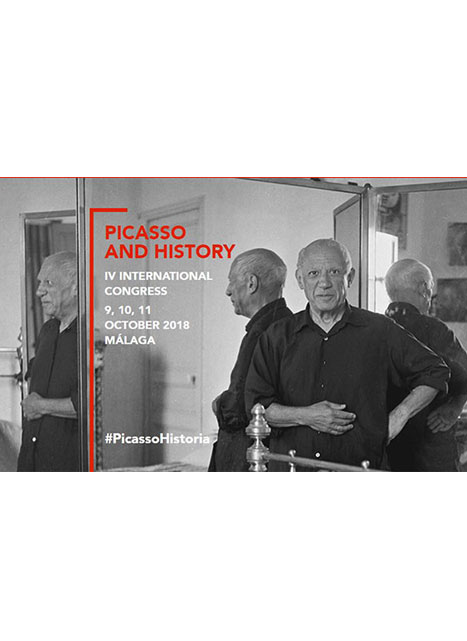
Picasso and history
October 9, 10, 11
Museo Picasso Malaga from October 9 to 11, 2018
29 speakers
170 participants
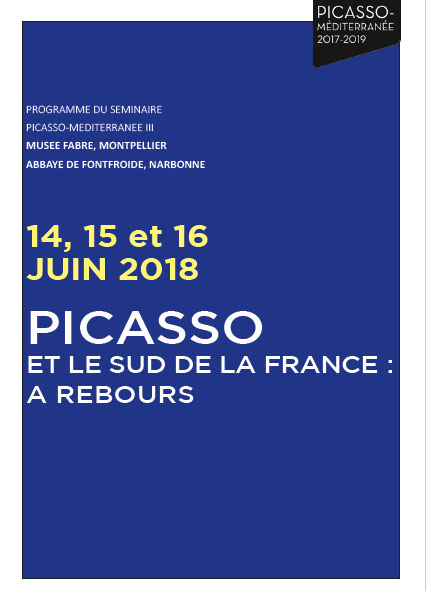
Picasso and the South of France, backwards
- June 15 and 16, 2018
Fabre Museum, Montpellier and Fontfroide Abbey, Narbonne
13 speakers
80 participants
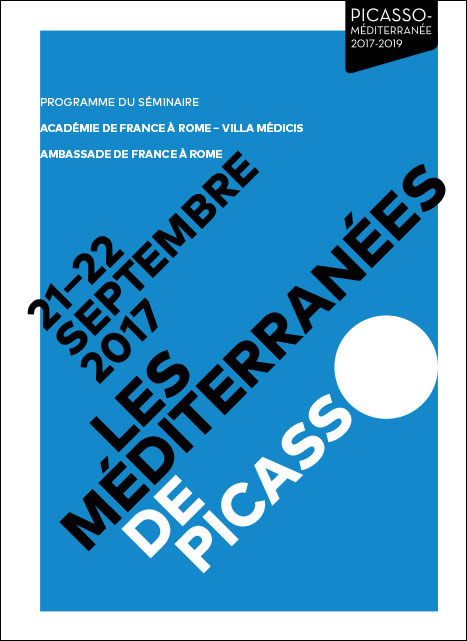
Picasso’s Mediterranean
September 17th and 18th, 2017
French Academy in Rome - Villa Medici and French Embassy in Rome
20 speakers
120 participants
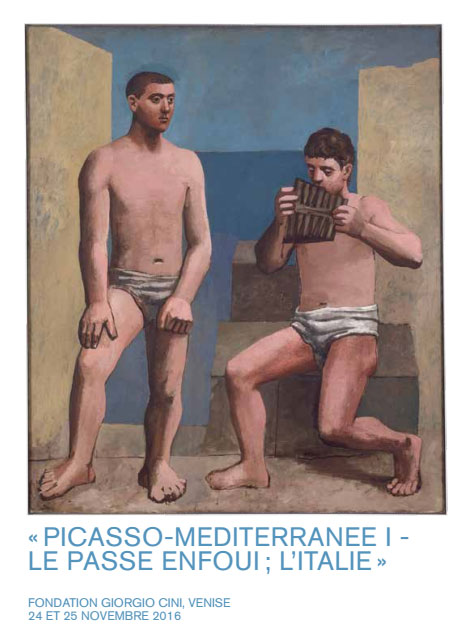
Picasso and Italy, the buried past
November 21 and 22, 2016
Fondazione Cini, Venice
31 speakers
70 participants
PRIVILEGED PARTNERSHIPS WITH OTHER MUSEUMS DEDICATED TO PICASSO
In 2018, the establishment of a special agreement with the Museu Picasso Barcelona led to an exchange of personnel allowing for the sharing of institutional and scientific practices: a curator from the Museu Picasso in Barcelona spent the months of February and March at the Musée national Picasso-Paris, and the person in charge of the photographic holdings of the Musée national Picasso-Paris was hosted in November and December at the Museu Picasso in Barcelona.
A specific partnership concerning the oral archives was set up with the signing of a tripartite agreement between the Picasso-Paris National Museum, the Picasso Museum in Barcelona and the Reina Sofia Museum in Madrid. This agreement provides for a multi-year work around the oral archives related to Pablo Picasso.
The first phase, which is currently underway, consists of taking stock of the existing documentation and audio or audiovisual archives relating to Picasso. A second phase will involve the creation of a memorial fund of oral archives through the collection and production of audiovisual documentation. This collection will thus make it possible to support other related research projects (history of Picasso's collections, creative process, Pablo Picasso's collaborators, mechanism for enriching the national collections, major donors, biographical elements, etc.), to support the organization of cultural events or to promote any other project for the dissemination of Picasso's work. This oral archive will be created through a program of interviews with key witnesses to the work and the artist, identified in consultation with each of the parties and based on the pre-existing documentary apparatus.
Beyond the realization of this long-term program, this partnership is also an opportunity to bring together three major institutions dedicated to Picasso's work to address issues of research and development of the collections while promoting the sharing of knowledge and best practices.
NETWORKED RESEARCH ON THE OCCASION OF EXHIBITION PROJECTS
The active presence of the Musée national Picasso-Paris within the LabEx CAP (member of the LabEx Council, participation in the recruitment juries for post-docs) has been made concrete since the 2015-2016 academic year when hosting an Immersion fellow in the collections and production department. From November 2017 to October 2018, the documents in Pablo Picasso's private archive collection testifying to his relationship with the Louvre Museum were identified, thus making a decisive contribution to the Louvre-Lens exhibition project "Les Louvre(s) de Picasso" (fall 2020), of which the Musée national Picasso-Paris is a privileged partner.
Thanks to the financing of research positions granted by the Musée de l'Armée and the Musée de Grenoble for the exhibitions "Picasso et la guerre" (Invalides, April 5-July 28, 2019) and "Picasso 1939-1945. Au coeur des ténèbres" (October 5, 2019-January 5, 2020), all of Picasso's wartime correspondence has been identified and inventoried in the LIGEO archive, library and documentation management database.
CONTINUED PARTICIPATION IN THE MICRO-FOLIES
In 2018, the Picasso Museum strengthened its involvement in the Micro-Folies project led by La Villette and developed by the Ministry of Culture as part of the "Culture near you" plan. Previously, the museum had participated in the development of content for the digital museum and offered educational support to the staff of the first Micro-Folie, located in Sevran. In 2018, a wider deployment of this type of structure throughout France was planned. In this context, the museum has participated in the discussions of the network of member establishments and has developed various proposals to enrich the catalog of offers that can be implemented in each new location. Particular attention has been paid to the most ambitious of these projects: the production of a traveling mini-exhibition, centered on one of the museum's masterpieces, "Women at their toilette" (1937-1938, papier collé, MP176), which could eventually be hosted in new Micro-Folies, starting in 2020.
THE NETWORK OF MONOGRAPHIC MUSEUMS
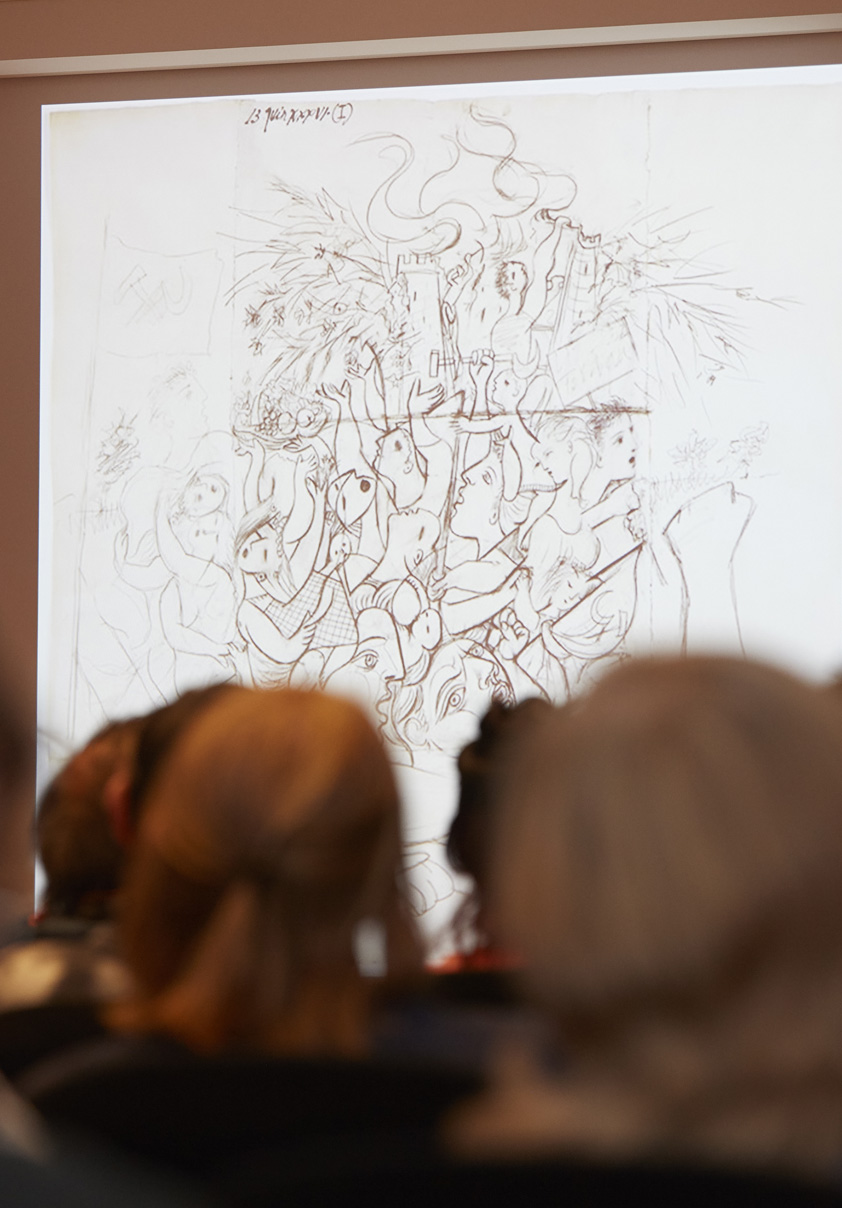
Thanks to the exceptional support of the Fondation des Treilles, a seminar devoted to the theme of the monographic museum - a museum that places an artist at the heart of its activities - was held from November 27 to 30, 2017. At the initiative of the Musée national Picasso-Paris and the Musée Rodin, it brought together 24 people, including 22 museum directors and professionals and two university researchers specializing in art history and museology and architectural history respectively. The institutional participants came from monographic museums of fine arts of the 19th and 20th centuries, of various legal statuses and scales in France, Europe and the United States.
The objective of the seminar was to reflect on the definition of the monographic museum and its particularities in relation to other fine arts museums. Organized in the form of round tables in order to encourage interaction between all the participants, the exchanges concerned:
- The collections, the legal status and the architectural aspects of the monographic museum;
- The challenges of programming and the influence of the monographic museum.
These study days led to the drafting of a manifesto that puts into perspective the identities, histories, issues and specific challenges of monographic museums. The question of the creation of a network of monographic museums was also addressed and led some professionals to meet again in St. Petersburg, Florida (USA) and in Amsterdam (Netherlands) in 2018 and 2019. The consolidation of this network is still under consideration with a view to future meetings.

